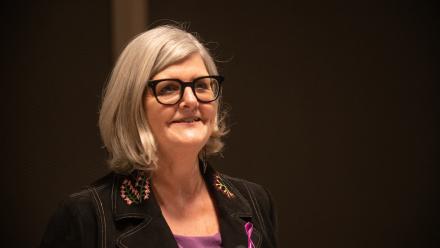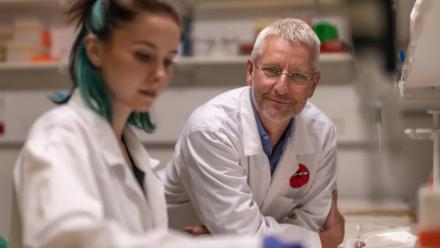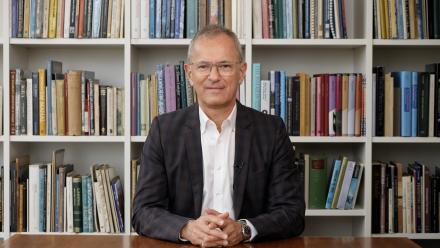Alumnus fighting malaria one mosquito net at a time
Businessman, philanthropist, Rhodes Scholar and ANU alumnus Michael Bungay Stanier reflects on doing great work, ending Malaria and his days at ANU.
You recently published the book End Malaria, how did that come about?
About a year and a half ago I published a book called Do More Great Work which gives advice and exercises on how to do more of what you love and less of the other stuff. One of the things I recommend in there is to do a Great Work Project - something you can really focus your time and attention and passion on rather than hoping more great work will show up. It occurred to me afterwards that I better try and do my own Great Work Project otherwise I would become one of those annoying writers that makes suggestions that they don't actually follow. End Malaria was my Great Work Project.
What is the idea behind the book?
A friend told me once that I have a Messiah complex - meaning that I always want to make the world a better place. So at the outset of my Great Work Project I tried to figure out what I could do for the world. I did a bit of research and found out that $10 was the cheapest unit of global change, because $10 can buy a mosquito net that saves lives. Malaria is one of those two diseases, along with AIDs, that is devastating the world (it kills 781,000 people each year), especially Africa (ninety-one per cent of Malaria deaths occur in Africa with the majority of those who die being children under 5 years of age). Nets are one of the most effective ways to prevent malaria infection because they create a protective barrier against mosquitoes at night, when the vast majority of transmissions occur. Suddenly I felt like something was coming together - all I had to do was create something that could raise $10.
I decided to use the network of business acquaintances that I had gained through five years of interviewing people for pod casts. I rallied 62 of some of the world's leading business writers and thinkers to write and donate essays about their best strategies and tips to do more Great Work to the cause. Luckily I convinced the partners involved in the book to waive their fees in order to raise the maximum amount of money. At least $20 from the sale of each hardcopy and the entire cost of electronic copies are donated to 'Malaria No More' - a charitable organisation whose guiding mission is to end Malaria related deaths by 2015. The money is used to send a mosquito net to a family in need and to support life-saving work in the fight against malaria.
How much have you raised so far?
About $300,000 and counting.
What did being awarded the Endowment for Excellence's Tillyard Prize mean to you?
I applied for the Rhodes Scholarship in my honours year of English. I was quite excited about it. The woman said the process is: "you apply and everyone gets a first round interview." So I applied and I got a letter back saying sorry you didn't make the cut. It was quite disheartening - I wasn't even good enough for a first round interview. So I had been thinking great, everyone but me gets a first round interview. Winning the Tillyard Prize came after that and was quite a surprise as I wasn't expecting it at all - I still don't know who nominated me. Winning the prize gave me another burst of wind in my sails to give me the confidence to say "ok I am still keen to win a Rhodes Scholarship. I am going to try again and I am going to win this. And I did" The Tillyard prize got me back on track.
What do you think you gained from your time at ANU?
I'd say the most important thing was finding people who were passionately pursuing what they felt really mattered. From my friend Andrew who got me doing radio plays to my friend Michael who was passionate about stopping violence against women to my friend Vic who was writing her law thesis about the illegal invasion of Iraq - these were people stepping into their own Great Work, and it helped me see how powerful that can be.


